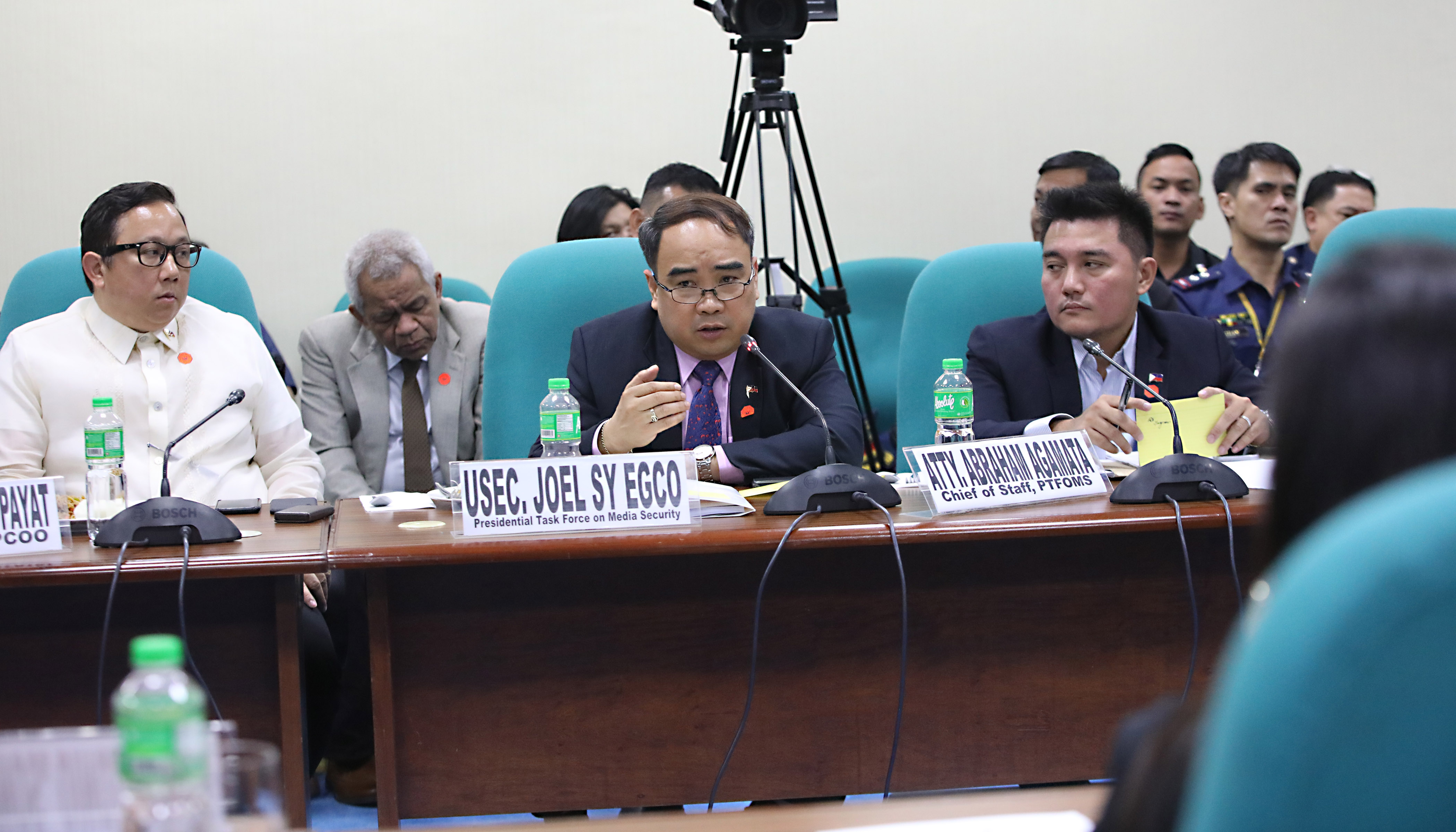News
Dark chapter in PH media history ‘being closed now’: Egco

During the launch of the “Duterte Legacy” campaign, Undersecretary Joel Egco said the current administration is upholding its commitment to ensure the security and safety of media workers. (PNA file photo by Avito C. Dalan)
MANILA – The supposed dark chapter in the history of Philippine media is about to come to an end, as President Rodrigo Duterte’s administration is working harder to protect journalists in the country, the executive director of the Presidential Task Force on Media Security (PTFoMS) said on Friday.
During the launch of the “Duterte Legacy” campaign, Undersecretary Joel Egco said the current administration is upholding its commitment to ensure the security and safety of media workers.
He made the remarks as he cited the 49 convictions of killers of media workers in the country.
Some 15 of the 49 convictions were work-related, three were not work-related, and the remaining 31 were in connection with the 2009 Maguindanao massacre, Egco noted.
He said the figures are a testament to the Duterte government’s “sincere, honest, and genuine” resolve to protect human rights and uphold human lives and human dignity.
“The dark chapter in the Philippine media is being closed now,” Egco said.
“From being one of the most dangerous and one of the deadliest, our country now holds the distinction of being the only country in the world that has convicted this huge number of killers of media workers.”
The Philippines has been considered as one of the most dangerous countries for media workers, following the killing of 58 people, including 32 journalists, in Maguindanao province on Nov. 23, 2009.
Ten years later, the Quezon City Regional Trial Court Branch 221 sentenced Datu Andal Ampatuan Jr., Zaldy Ampatuan, and Anwar Ampatuan Sr., the prime suspects behind the mass murder of Filipino journalists, to life imprisonment without parole.
Media violence ‘byproduct of hostile, violent geopolitical environment’
Egco acknowledged that Mindanao accounted for the most number of incidents, making it the “most vulnerable region” for journalists.
He said media violence in the country is “a direct byproduct of the hostile or violent geopolitical environment.”
“We have three major indicators or contributors to the problem – dirty politics; corruption and crimes; and vulnerability of the media sector,” Egco said, adding that journalists are also prone to risks due to their “duty, advocacy, and crusade.”
He said the pressing issues plaguing media workers have prompted the Duterte administration to push for the passage of the proposed Media Workers’ Welfare Act that intends to give them equal protection, security, and benefits.
“Because of these vulnerabilities, we forged a memorandum of agreement with ACT-CIS party-list for the enactment of a bill called the Media Workers Welfare Act,” Egco said. “It is now enrolled as House (of Representatives) Bill (HB) 2746 and it seeks to uplift the living conditions of media workers in the country, as well as uplifting their skill levels to be at par with the international or foreign counterparts.
”
The ACT-CIS party-list in July 2019 filed HB 2746 that seeks to address the grievances of media workers by providing them additional benefits and security of tenure.
HB 2746 or the Proposed Media Workers’ Welfare Act eyes the granting of mandatory additional insurance benefits by the Social Security System and the Government Service Insurance System, including death and disability benefits, and reimbursement of medical expenses.
Under the measure, a Commission on Press Freedom and Media Security will be created to serve as media workers’ safeguard from all forms of attacks and as a development center for journalism.





















